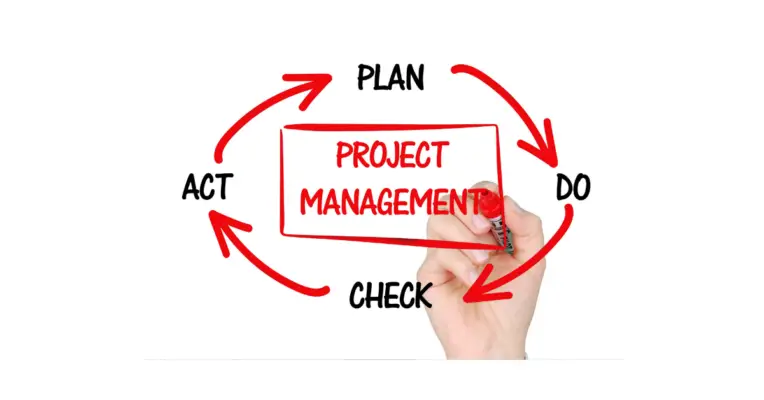Legal project manager jobs require unique legal knowledge and project management skills. These professionals oversee all aspects of a legal project, from initial planning and budgeting to execution and completion.
They work closely with attorneys, clients, and other stakeholders to ensure that projects are completed on time, within budget, and in compliance with all legal and regulatory requirements.
Legal project managers also play a crucial role in risk management, identifying potential issues and developing mitigation strategies.
Additionally, they may be responsible for managing a team of legal professionals, coordinating their efforts and ensuring everyone is working towards the same goals.
Legal project managers are key in helping law firms and legal departments deliver high-quality legal services efficiently and effectively.
A legal project manager oversees and coordinates various tasks and activities within a legal setting.
This article aims to provide an overview of legal project manager jobs, including the qualifications required to enter this profession, the responsibilities they typically undertake, and any additional requirements that may be expected of full-time legal project managers.
The following sections will delve into the details of this occupation, shedding light on the skills and knowledge needed to excel in this field.

What Is a Legal Project Manager?
A legal project manager’s role is increasingly important in the legal industry.
Legal project managers are responsible for overseeing and managing the various aspects of legal projects, including budgeting, timelines, and resource allocation.
They work closely with lawyers and other professionals to ensure that projects are completed efficiently and effectively.
The Role of a Legal Project Manager
One important aspect of the role of a legal project manager is to oversee and coordinate the various tasks and activities involved in the execution of legal projects.
The legal project manager is responsible for ensuring that all necessary documents are prepared and organized according to project plans and schedules.
They must possess relevant experience and skills in project management and legal knowledge.
The legal project manager’s responsibility includes developing and implementing project plans, which outline the objectives, timelines, and resources required for successful project completion.
They must also ensure that project schedules are adhered to and promptly address any delays or issues.
The legal project manager plays a crucial role in the organization and efficiency of legal projects, requiring a combination of legal expertise and project management skills.
Qualifications Needed to Become a Legal Project Manager
This will focus on the qualifications needed to become a legal project manager, specifically in education, experience, skills, and knowledge. These key points are crucial in ensuring a successful career in this field.
Education
Education requirements for legal project manager jobs often include a bachelor’s degree in a relevant field such as law, business, or project management. However, the specific educational background may vary depending on the employer and the nature of the job.
In addition to a degree, individuals interested in pursuing a career as a legal project manager may benefit from additional training and certification.
Some universities offer specialized programs or courses in project management or legal project management, which can provide individuals with the necessary skills and knowledge to excel in this field.
Furthermore, a combination of education and experience in the legal or project management field can enhance one’s employment opportunities as a legal project manager.
Making connections within the industry and staying updated on the latest trends and developments can also contribute to success in this role.
Experience
Experience in the field is a crucial factor that employers consider when evaluating candidates for legal project management positions.
Legal project manager jobs require individuals with a strong background in managing projects within the legal industry. This experience helps them understand legal projects’ unique challenges and intricacies.
Additionally, experience allows candidates to navigate the legal community effectively, building relationships and collaborating with various stakeholders.
Knowledge of legal documents and the ability to use project management tools efficiently are essential skills for legal project managers.
Employers also value candidates with experience in providing services to clients, as this demonstrates their ability to meet client expectations and manage their needs effectively.
Furthermore, experience in ensuring the safety and security of legal projects is highly regarded by employers, as it showcases a candidate’s commitment to compliance and risk management.
Skills and Knowledge
A strong foundation in managing complex tasks and a deep understanding of the legal industry are highly sought-after qualities in candidates for legal project management positions.
To excel in legal project manager jobs, individuals must possess various skills and knowledge that enable them to oversee and coordinate legal projects within a firm effectively.
These skills and knowledge include:
- Expertise in project management principles and methodologies.
- Proficiency in legal research and analysis.
- Strong communication and interpersonal skills to collaborate with project teams and stakeholders.
- Attention to detail and organizational abilities to manage deadlines and budgets.
- Knowledge of document collections and legal processes to ensure compliance and efficiency.
As a full-time legal project manager, one would work closely with project owners and stakeholders to define project objectives, develop plans, and monitor progress.
Additionally, they may oversee special projects and ensure the firm successfully completes legal tasks.
Responsibilities of a Legal Project Manager
This will focus on the key responsibilities of a legal project manager. These responsibilities include developing project plans and schedules, managing the project team, and ensuring the accurate maintenance of confidential production request logs and records for production and service of process.
Additionally, it will explore the importance of adhering to document collections, retention guidelines, and document acceptance guidelines. These guidelines are crucial for ensuring proper management of legal documents.
To successfully carry out these tasks, the legal project manager must maintain organization, attention to detail, and a strong understanding of legal processes.
Developing Project Plans and Schedules
To effectively develop project plans and schedules for legal project manager jobs, it is necessary to analyze the requirements and constraints of the project at hand. This involves considering various factors such as:
- The responses required from different stakeholders.
- The salary budget allocated for the project.
- The working environment in which the project will be executed.
Additionally, legal project managers must take into account:
- The confidential production request logs and the records for production, ensuring compliance with document retention guidelines.
- Adhering to legal document acceptance guidelines and staying updated on relevant legal training.
Furthermore, legal project managers need to be aware of:
- Job openings and job classification within their organization.
- Effectively allocating resources and managing the project.
These considerations and responsibilities are essential for legal project managers to plan and execute projects in the legal field successfully.

How to Become a Healthcare Project Manager
Managing the Project Team
Legal project manager jobs involve managing the project team within a legal firm. As a legal project manager, one must possess legal expertise and strong communication skills to coordinate and lead the team effectively.
The project team may include legal professionals, support staff, and an administration team.
The project manager is responsible for ensuring that team members understand their roles and responsibilities and fostering effective collaboration among team members. This includes conducting regular team meetings, providing guidance and support, and resolving any conflicts.
Additionally, the legal project manager must maintain a comprehensive inventory of project resources and monitor progress towards project milestones.
By effectively managing the project team, the legal project manager ensures smooth execution and minimizes potential risks.
Ensuring Confidential Production Request Logs Are Accurately Maintained
Ensuring accurate maintenance of confidential production request logs is essential for effective project management within a legal firm.
These logs record all productions connected with legal proceedings, including government investigations.
They play a crucial role in the records production process, allowing for the efficient retrieval and delivery of requested materials.
To provide exceptional service, legal project managers must prioritize the maintenance of these logs, ensuring they are up-to-date and accurately reflect the status of each production.
This includes recording the date and time of production, tracking any safety concerns or delivery issues, and maintaining proper notary certification when required.
Additionally, the logs enable a timely response to subpoenas, ensuring compliance with legal obligations and facilitating the administration of e-discovery.
Maintaining confidential production request logs is fundamental to powerful legal project management.
Records for the Production and Service of Process Are Properly Maintained
In addition to maintaining accurate, confidential production request logs, legal project managers also play a crucial role in ensuring that records for production and service of process are properly maintained.
This responsibility encompasses updating service logs, maintaining a safety culture, and handling external organizations in connection with subpoenas.
Legal project managers must handle these tasks with the utmost responsibility, as any errors or omissions could have significant legal implications.
Furthermore, properly maintaining these records is essential for the smooth operations of a law firm or legal department.
To excel in this aspect of their role, legal project managers need to have a paralegal certificate and a thorough understanding of safe behaviors and practices.
Typical examples of records that need to be maintained include service of process receipts, affidavits of service, and relevant correspondence.
| Task | Responsibility | Importance |
|---|---|---|
| Updating service logs | Promoting safe behaviours and practices within the workplace | Ensures legal compliance and facilitates tracking of legal documents |
| Maintaining a culture of safety | Ensures timely and accurate responses to legal requests | Reduces the risk of accidents and legal liabilities |
| Handling external organizations | Coordinating with third parties for subpoenas | Ensures timely and accurate response to legal requests |
Document Collections, Retention Guidelines, and Document Acceptance Guidelines Are Adhered To
Document collection, retention, and acceptance guidelines are crucial for maintaining an organized and efficient workflow within a law firm or legal department.
These guidelines ensure that all relevant documents are collected and stored appropriately, outlining the necessary procedures for accepting new documents.
Adhering to these guidelines is particularly important for legal project manager jobs, as they oversee the management of legal projects and ensure that all necessary documents are obtained and accounted for.
Project managers may require training in legal resources and procedures to carry out these responsibilities successfully.
Providing Exceptional Service to Clients and Other Stakeholders
In addition to ensuring adherence to document collection, retention, and document acceptance guidelines, legal project managers are responsible for providing exceptional service to clients and other stakeholders.
This involves managing and coordinating cross-functional teams to deliver projects effectively and efficiently.
For instance, Harcourt Matthews Ltd Legal Project and RGB Recruitment Project have implemented cross-functional teams to enhance project delivery.
Similarly, Circle Recruitment Project has established an Enterprise Program Management Office (EPMO) to oversee and support project management activities. By doing so, legal project managers aim to minimize potential project risks and optimize client experiences.
Johnson & Johnson Global Legal Organization, for instance, is dedicated to providing outstanding service to stakeholders through its legal career development initiatives and attractive conditions of employment.
Ensuring exceptional service to clients and stakeholders is integral to legal project management.

Additional Requirements for Full-Time Legal Project Managers
This focuses on understanding gender identity and sexual orientation discrimination laws.
It explores the legal framework surrounding these issues and the implications for individuals in various contexts.
Understanding of Gender Identity and Sexual Orientation Discrimination Laws
Gender identity and sexual orientation discrimination laws require a comprehensive understanding to manage legal projects effectively.
Being well-versed in these laws is crucial as a legal project manager to ensure compliance and promote a fair and inclusive work environment. Here are some key points to consider:
- Business analysis experience: A legal project manager should have a strong background in analyzing business requirements and identifying potential legal risks related to gender identity and sexual orientation discrimination.
- Technical skills: Familiarity with legal software and tools is essential for efficiently managing legal projects and ensuring accurate documentation.
- Supportive work environment: Legal project managers should create an environment that fosters diversity and inclusivity, promoting a safe space for all employees.
- Competitive salary: Offering a competitive salary attracts top talent and reinforces the value placed on understanding and addressing gender identity and sexual orientation discrimination issues.
- Community at heart: Legal project managers should prioritize community engagement and initiatives that support equality and social justice, aligning with the company’s values and objectives.
Conclusion
Legal project managers play a crucial role in the legal industry by ensuring the successful completion of projects and improving overall efficiency. They must possess a unique combination of legal knowledge and project management skills.
Responsibilities include overseeing project timelines, budgets, and resources and coordinating with various stakeholders.
Full-time legal project managers may have additional requirements, such as a Juris Doctor degree or experience in a specific legal area.
With the increasing complexity of legal matters, the demand for skilled legal project managers is expected to grow.

Chris Ekai is a Risk Management expert with over 10 years of experience in the field. He has a Master’s(MSc) degree in Risk Management from University of Portsmouth and is a CPA and Finance professional. He currently works as a Content Manager at Risk Publishing, writing about Enterprise Risk Management, Business Continuity Management and Project Management.

